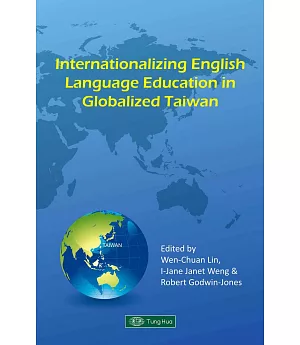For decades, English as a foreign language (EFL) has been generally assumed to be the essential element in global communication, not to mention in today’s world where one is likely to have
more encounters (online or in person) with people from different cultures. Crystal (2003) described English as a “global language” and people in Taiwan as well as in other countries in Asia
tend to view anything involving English positively. Learning English as a global language is considered by many as vital to Taiwan’s economy in terms of providing access to the world community,
and is viewed as one of the means to success in its economic globalization and modernization. Being able to speak English carries significant prestige, and it is generally believed that
speaking better English fuels upward mobility in terms of career and social status (Lin & Byram, 2016). This social phenomenon exists not only in Taiwan but also in other Asian countries,
such as China, Japan and Korea (see the Afterword).
In an age of rapid globalization, the process of interacting with people who are different from oneself in fundamental ways related to appearance, language, worldviews, or a number of other
categories has become part of our everyday lives, for example, in multilingual, multicultural communities or in culturally diverse families (Godwin-Jones, 2018). Since, the majority of human
societies nowadays inevitably need to deal with multiple cultures and multiple languages, this gives rise to a growing public interest in the capacity for communicating across the world in
English as a common global language, as a lingua franca (Dewey, 2007).This concern is accelerating as technological advances today have played a major role in bringing people together,
facilitating the process of globalization.
The Internet has reached the remotest corners of the world. People are now able to see and appreciate differences in culture, way of life, and ways of interpreting the world at the click of a
button. The knowledge of and skills in using information technology in EFL teaching and learning has become a new form of “literacy”, or “new literacies” (Lankshear & Knobel, 2003) that are
crucial in our educational system today. This has also resulted in a significant call for the development of intercultural communication, for 21st-century citizens to meet a visible increase in
the need and desire to be interculturally sensitive and competent. An experience living abroad or in close contact with those from another culture can lead to dramatically changed perspectives
on the values and behavior patterns of one’s native country (Godwin-Jones, 2018). For this reason, the integration of education abroad for international exposure and developing intercultural
communication competence is now becoming a significant part of EFL education in Taiwan and abroad.





















